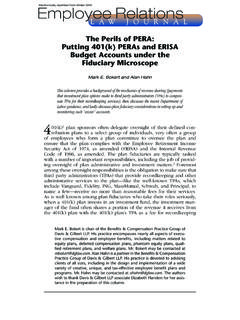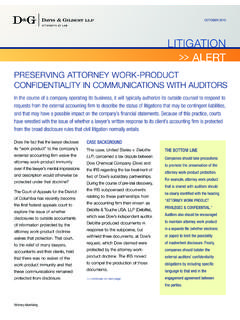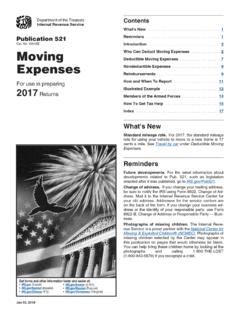Transcription of LITIGATION >> ALERT - Attorneys at Law
1 OCTOBER 2009. LITIGATION . >> ALERT . USING liquidated DAMAGES CLAUSES. IN EMPLOYMENT CONTRACTS. An increasing number of contracts are incorporating liquidated damages clauses. In these clauses, the parties to a contract designate a fixed or liquidated amount of damages for the non-breaching party to collect upon a specified breach. A recent federal court decision highlights an increased willingness by courts to enforce these provisions in employment agreements, including those containing restrictive covenants. The reasoning of the decision has application for a host of other corporate and commercial agreements as well. Courts will enforce liquidated the end of his employment with GFI. damages provisions only if actual The agreement fixed damages for THE BOTTOM LINE. damages from a breach are difficult breach of the non-compete and non- Employers should consider using to determine and the sum fixed solicit covenants as the product of liquidated damages clauses in as damages bears a reasonable his average monthly commissions employment agreements to fix the relationship to the loss foreseeable and the number of months remaining sum of damages from breaches of (at the time the parties sign the on the covenants.)
2 The broker resigned contract) from a party's breach. and began work for a competitor restrictive covenants, and should In contrast, courts will not enforce during the restricted four-month period, carefully consider the anticipated these provisions if the amount of causing the employer to sue and harm to ensure that the fixed sums damages is easy to compute or seek enforcement of the liquidated are reasonable. Companies should the estimate provided is grossly damages provision. also examine other forms of disproportionate to the anticipated The federal court in New York upheld agreements in which they enter into harm. One familiar example of a the covenants on several grounds: to consider whether a liquidated liquidated damages clause comes damages provision will provide it from real estate contracts where >> First, the court agreed that efforts buyers often forfeit their deposits to fix the amount of damages made with greater leverage if and when for failing to complete their planned sense in this competitive industry, the other party to the agreement purchases.
3 As the damage from the loss of a breaches the contract. successful broker and his clients In the recent case of GFI Brokers, was difficult to compute. LLC v. Santana, a currency option broker had agreed to post- >> Second, the court looked favorably employment restrictive covenants on the particular method of fixing limiting his ability to work for a damages, which used a proportion competitor and solicit his former >> continues on next page customers for four months after Attorney Advertising OCTOBER 2009. LITIGATION . >> ALERT . tied to the time remaining on the would not invalidate a liquidated covenants. The court reasoned damages formula merely because FOR MORE INFORMATION. that the use of proportion helped some other measure might better Neal H. Klausner, Partner avoid the risk that a specific sum correlate to actual damages. The fixed for damages would be court also rebuffed the broker's disproportionate if the employee argument that the provision violated a non-compete provision deterred him from leaving, finding Scott M.
4 Singer, Associate that had only a short time left on that liquidated damages provisions the restricted period. Thus, the are always designed to encourage court found that the employer did compliance with contractual duties or the D&G attorney with whom not have a one-size-fits-all fixed because they fix an amount of you have regular contact. sum that would apply whether damages for non-compliance. there were just a few weeks or GFI Brokers demonstrates that courts many months remaining on the are willing to enforce liquidated damages DAVIS & GILBERT LLP. restriction period, which could T: provisions that use a reasonable 1740 Broadway, New York, NY 10019. be considered an unreasonable formula to estimate harm even if the forecast in some situations. estimate was not calculated using the 2009 Davis & Gilbert LLP. >> Third, the court rejected the best possible forecast available. While broker's argument that the these provisions are becoming an liquidated damages provision increasingly useful tool in employment should not be enforced because agreements, including those with the fixed amount of damages restrictive covenants, they must be considered the brokerage's tailored to particular circumstances revenues on essentially a gross to avoid the risk that a court will not basis.
5 The court held that it enforce them.












